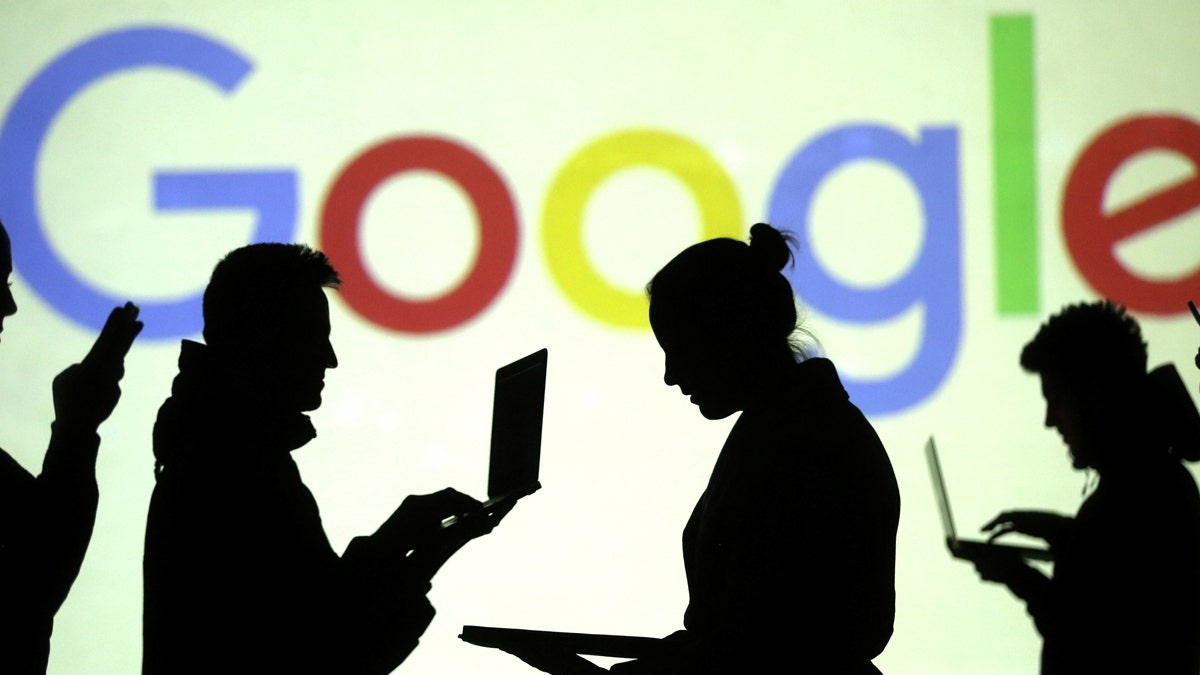
Silhouettes of laptop and mobile device users are seen next to a screen projection of Google logo in this picture illustration taken March 28, 2018. REUTERS/Dado Ruvic/Illustration - RC1F87EA23D0 (Reuters)
After watching both houses of Congress grill Mark Zuckerberg over the way Facebook handles privacy issues, I assume Google will eventually find its way back to Capitol Hill, too.
Google has dozens of products and a variety of privacy settings, but let's look at Google Maps. I advise everyone to take a gander at the permissions Google requires you to give up. There are over 10 categories, many repeated two or three times for no reason.
When you carefully scroll down the long list, which includes everything except giving up your firstborn, ask yourself the simple question: Why?
Here are a few things that should catch your eye. Under "Contacts"—a category that shows up twice—it says Google can find and read your contact list on your phone; this lets you find someone's address on a map by searching their name. But the second occurrence says that Google can find and read and modify. Why would Google Maps want to modify your contact list?
More From PCmag
Under the "SMS" category, you provide permission for Google to send messages from your phone. It's likely to facilitate features like location sharing, but let's hope it's not used to send incriminating messages, too.
Under "Photos/Media/Files," it says Maps can read your USB drive and "modify or delete the contents of your USB storage." This is reportedly so Google "can write map files to your phone" for things like offline access, but the scary wording doesn't inspire confidence.
At the bottom of this huge list, we get down to the whoppers. The category is dubbed "Other." Besides having even more redundant granted permissions already found elsewhere on the list, you give Google permission to "download files without notification" as well as "receive data from Internet" as you give the app "full network access" and the ability to rack up your data bill. It mentions full network access seven times on the same list.
This is compounded by you giving Google permission to "send sticky broadcast," which refers to intercommunication between apps. Why?
I'm irked that the program can also control your Android phone's NFC. To me, it seems like that's an easy in for hackers.
Look for yourself (go here > Permissions > View Detail) and you'll come away with a bad feeling. I sure don't not like any of it.
For more, check out How to Get Google to Quit Tracking You.
This article originally appeared on PCMag.com.








































